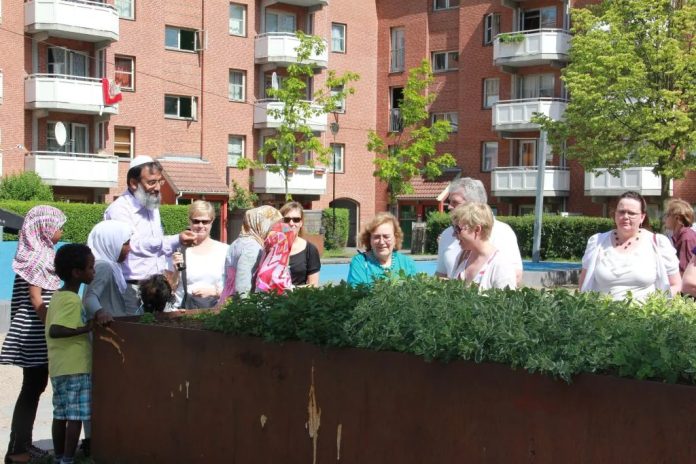The Court of Justice of the European Union (CJEU) will hold a public hearing to test the legality of the Danish government’s “Ghetto Package”, according to EU Reporter.
The hearing will take place on 1 July. The package is a programme introduced in 2018 that allegedly aims to change the demographics of neighbourhoods by reducing housing development in targeted areas. This, campaigners claim, has resulted in the loss of thousands of family homes through sales, demolitions and forced evictions, among other things.
One of the cases pending at the Supreme Court of the European Union has been brought against the Danish government by a group of Copenhagen residents. Their homes in Mjølnerparken, which was recognised as a “tough ghetto” under 2018 legislation, are for sale.
However, the campaign group, the Open Society Justice Initiative, argues that the determining factor in defining a “ghetto” is whether the majority of residents are considered to be of “non-Western” origin. The group says that despite the name, the “non-Western” classification is not based on geographical location, but residents argue that it breaches EU laws against racial discrimination.
The Open Society Justice Initiative says that in 2019, the Danish government has started calling the affected areas “parallel societies” and “transformation areas” instead of “ghettos” and “tough ghettos” in its annual list of target areas.
Mjølnerparken disappeared from the latest list, compiled in December 2023, as the number of residents fell below 1,000 as a result of ongoing displacement and reconstruction, the Initiative reported.
Nonetheless, the sale of over 200 family homes to a private investor is proceeding, with new residents now moving in to replace those who have had to leave. This is despite an urgent appeal from three UN human rights experts requesting Denmark to halt the sale pending resolution of the litigation and a judgment of December 2021 from the Danish Eastern High Court stressing that that the loss of a home is such a serious fundamental rights issue that the residents are entitled to challenge the ‘Ghetto Package’ development plan for the area before it is carried out.
Useful initiative or discrimination
The Open Society Justice Initiative states that the CJEU judgement may not only have significance for Denmark, but also for the whole of Europe, where “trends of neighbourhood-based discrimination have been growing”. Tobias Gregory from the housing movement Almen Modstand stated:
It is crucial that the Court makes it clear that these proposals cannot proceed because they are unlawful.
Lamies Nassri, Project Manager at The Centre for Muslims’ Rights in Denmark, stated that “Islamophobia has been on the rise the last couple of decades in Denmark, becoming a hallmark across the political spectrum.”
The ‘ghetto laws’ starkly illustrate state-enabled Islamophobia and discrimination against Muslims, categorizing them as ‘non-western’ to justify their displacement from their neighbourhoods.
